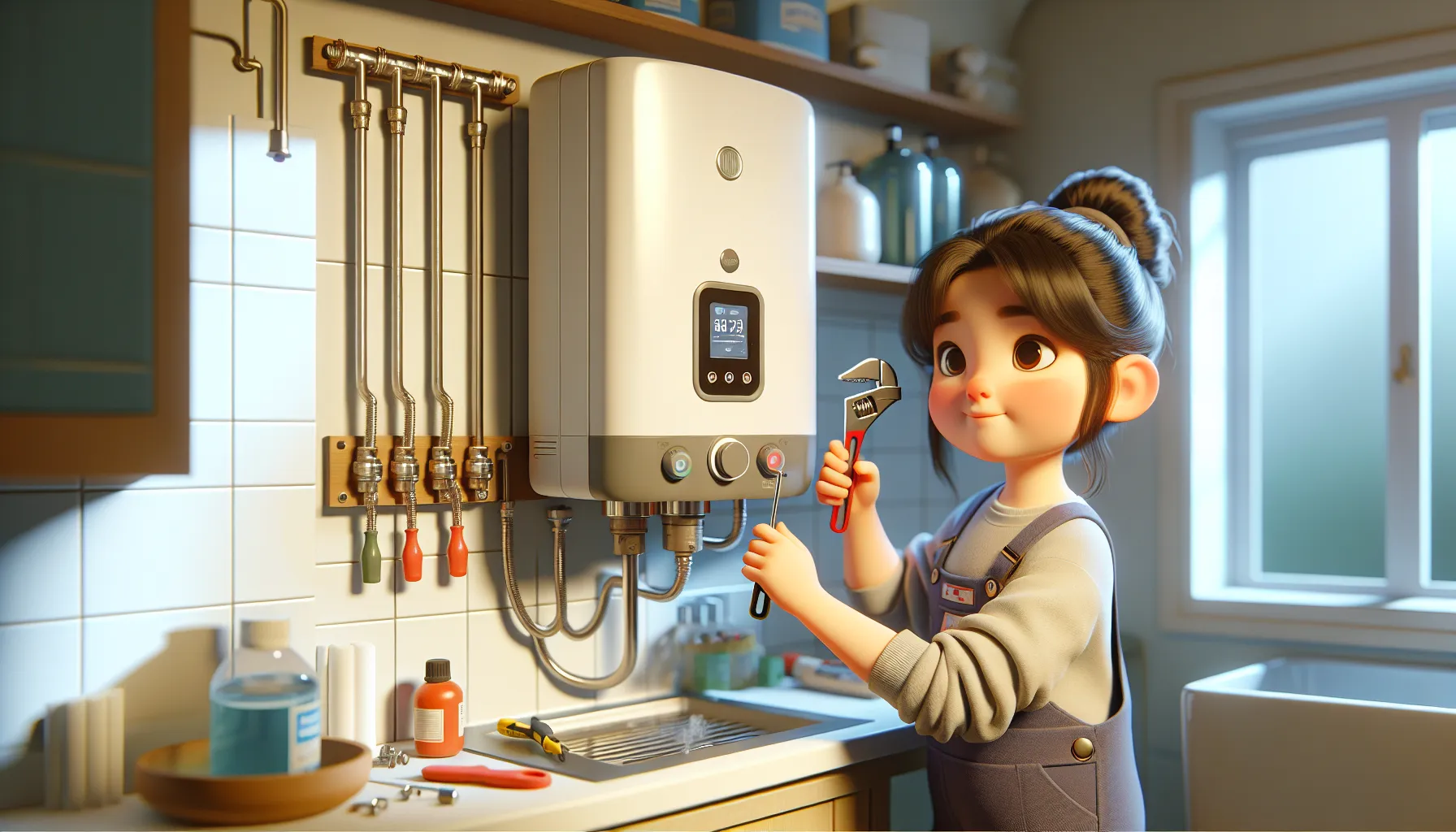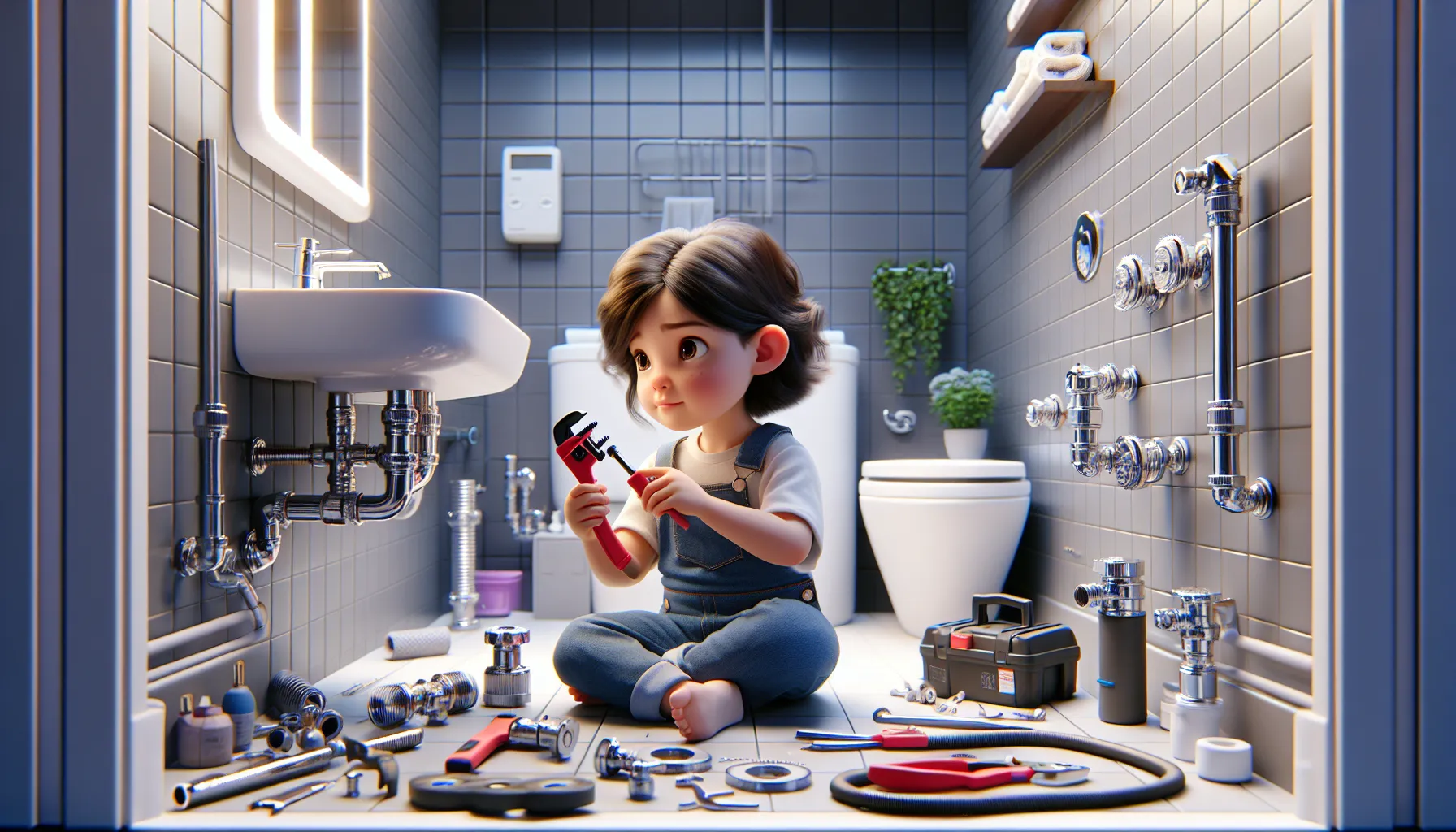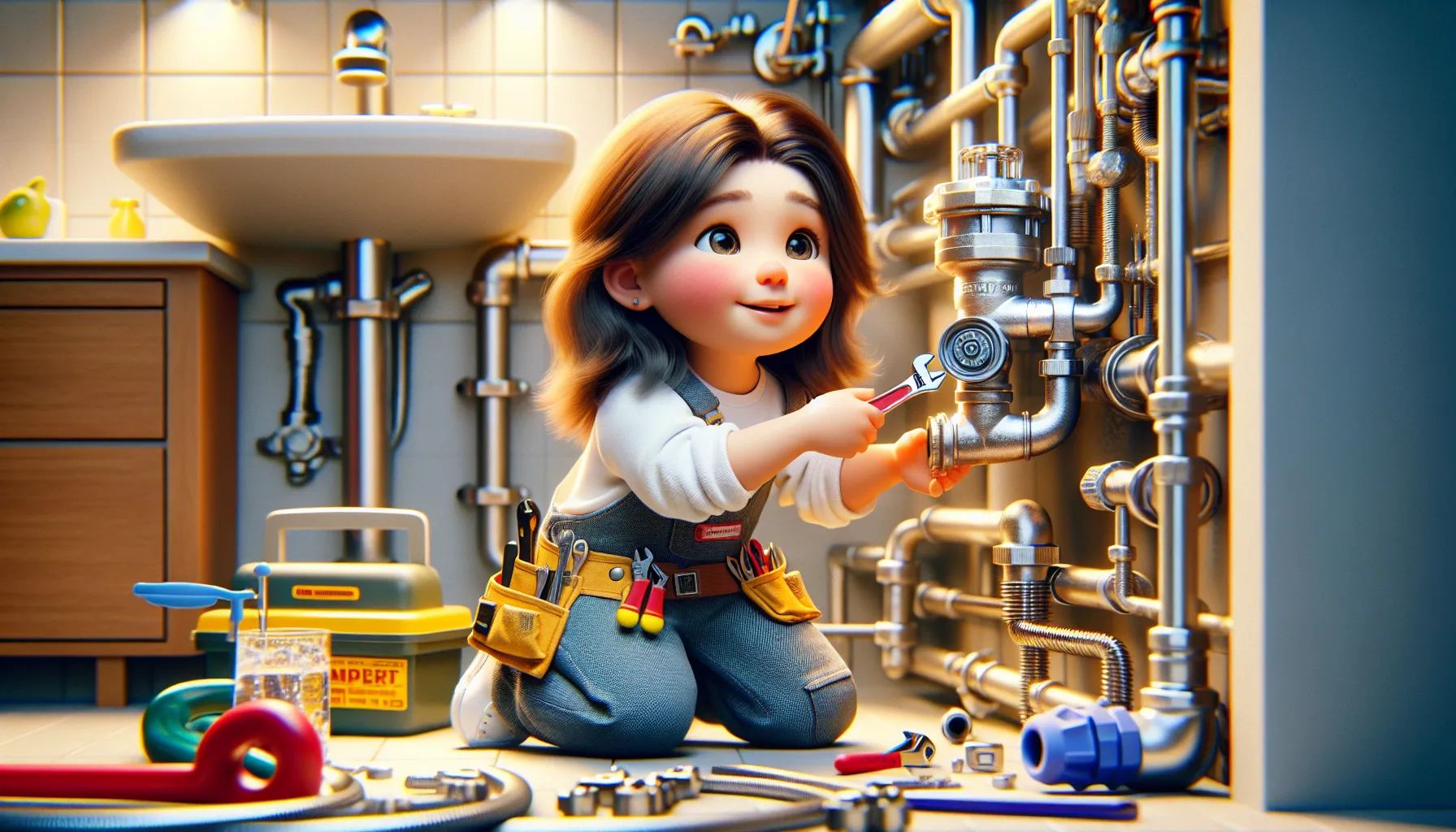You might be considering installing a tankless water heater in your home, but before you make the switch, it’s important to weigh the advantages and disadvantages of this modern technology. One of the biggest benefits of tankless water heaters is that they provide endless hot water on demand, unlike traditional water heaters with limited capacity. This means no more cold showers or waiting for the tank to refill. Additionally, tankless water heaters are energy efficient because they only heat water when needed, which can lead to significant cost savings on your utility bills.
On the flip side, tankless water heaters can have a higher upfront cost compared to traditional tanks. Installation and maintenance might require specialized skills that can add to the overall expense. Another potential disadvantage is that simultaneous use of multiple appliances can strain the unit, causing fluctuations in water temperature and pressure. However, with proper sizing and maintenance, these issues can be mitigated, making tankless water heaters a viable option for many households looking to upgrade their water heating systems.
Key Takeaways:
- Advantages: Tankless water heaters are energy efficient, saving you money on your utility bills.
- Advantages: They provide a continuous supply of hot water, unlike traditional water heaters with limited storage capacity.
- Advantages: Tankless water heaters have a longer lifespan than traditional water heaters, lasting up to 20 years or more.
- Advantages: They take up less space as they are compact and can be installed in various locations in your home.
- Disadvantages: Tankless water heaters have a higher upfront cost compared to traditional water heaters.
Advantages of Tankless Water Heaters
Energy Efficiency
It is no secret that tankless water heaters are highly energy efficient. For starters, they eliminate the standby heat loss that traditional water heaters experience. This means that you are not wasting energy heating water continuously in a storage tank, making them a more environmentally friendly option. Tankless water heaters only heat water on demand, ensuring that energy is only consumed when hot water is needed.
Longevity and Durability
Heaters are known for their remarkable longevity and durability. Tankless water heaters tend to last significantly longer than traditional storage tank water heaters. With proper maintenance, some tankless models can outlast traditional units by up to 10 years. This results in less frequent replacements and fewer costs associated with the upkeep of your water heating system.
Tankless water heaters are typically more compact and take up a fraction of the space that traditional storage tank water heaters do. Their sleek and space-saving design allows for flexible installation options, including mounting on walls or in tight spaces. This is particularly advantageous for homeowners with limited square footage or those looking to maximize space in utility rooms or closets.
On-Demand Hot Water Supply
OnDemand hot water supply is one of the standout features of tankless water heaters. With a tankless system, you can enjoy endless hot water whenever you need it. Whether you have a large household with high hot water demands or simply enjoy long showers, a tankless water heater can provide a consistent supply of hot water without the worry of running out mid-shower.
Lower Operational Costs
Tankless water heaters can lead to lower operational costs in the long run. While the initial investment may be higher than traditional water heaters, the energy savings and longevity of tankless models can result in significant cost savings over time. Additionally, the reduced risk of leaks and water damage associated with tankless water heaters can help save on potential repair and replacement costs down the line.
Disadvantages of Tankless Water Heaters
Initial Investment Cost
Any homeowner considering a tankless water heater should be prepared for a higher initial investment cost compared to traditional tank water heaters. The upfront cost of purchasing and installing a tankless unit can be significant, potentially requiring changes to the existing plumbing and electrical systems in your home.
Installation Complexity and Cost
Cost considerations extend beyond the purchase price, as installation complexity can also add to the overall expense. Unlike traditional water heaters that can be easily swapped out, tankless units may require professional installation to ensure proper functioning. The need for electrical upgrades, venting adjustments, and additional plumbing modifications can all contribute to the installation cost.
Water heaters that require more intricate installation may also lead to higher labor costs, as skilled technicians are needed to properly set up the unit for optimal performance and efficiency.
Limited Hot Water Output for Simultaneous Use
Costing the convenience of unlimited hot water supply, tankless water heaters have a limited hot water output for simultaneous use. While a tank water heater can handle multiple hot water demands at once, such as running a dishwasher while someone showers, tankless units may struggle to meet the needs of larger households during peak usage times.
This can result in situations where multiple family members cannot run hot water simultaneously, leading to inconvenience and potential conflicts over hot water usage.
Retrofitting Challenges in Older Homes
Initial installation challenges can be intensified for older homes that were not originally equipped to accommodate tankless water heaters. Retrofitting these units into existing plumbing systems and spaces designed for traditional tank heaters can be complex and costly, requiring modifications to venting systems and potential structural adjustments.
Simultaneous changes to electrical setups and gas lines may also be necessary, adding to the overall retrofitting challenges that homeowners may face.
Maintenance and Repair Considerations
Cost considerations for tankless water heaters extend beyond the initial purchase and installation, as ongoing maintenance and repair requirements should also be taken into account. While tankless units are generally more durable than traditional tank heaters, they are not immune to wear and tear.
Older tankless water heaters may require periodic maintenance, such as descaling to remove mineral buildup, or repairs to components like the heating element or sensors. Homeowners should be prepared for these potential expenses when opting for a tankless water heater.
Understanding the Mechanics of Tankless Water Heaters
How Tankless Water Heaters Work
Despite their compact size, tankless water heaters are powerful devices that provide hot water on demand. Unlike traditional water heaters that store and heat water continuously, tankless water heaters heat water only when needed. When you turn on a hot water tap, cold water travels through a pipe into the unit. Inside the heater, either a gas burner or an electric element heats the water instantaneously as it flows through. This process allows for a constant supply of hot water without the need for a storage tank.
Types of Tankless Water Heaters
Any of the two main types of tankless water heaters can be used, either gas-fired or electric. Gas-fired tankless water heaters tend to have higher flow rates, making them ideal for larger households with higher hot water demands. Electric tankless water heaters, on the other hand, are more energy-efficient but may struggle to keep up with the demands of multiple hot water sources simultaneously. Importantly, both types provide hot water on demand and eliminate standby energy losses associated with traditional tank heaters.
| Gas-Fired Tankless Water Heaters | Electric Tankless Water Heaters |
| Higher flow rates | More energy-efficient |
| Suitable for larger households | May struggle with multiple hot water sources |
| Instantaneous hot water | Eliminate standby energy losses |
| Requires proper ventilation | Lower upfront cost |
| More expensive upfront cost | Less maintenance required |
Any choosing between gas-fired and electric tankless water heaters, it is important to consider factors such as your household size, hot water needs, and budget constraints. Importantly, both types offer energy savings and a continuous supply of hot water, making them an excellent choice for many homeowners.
Important Features and Technologies
Features such as modulating gas valves, condensing technology, and remote control capabilities contribute to the efficiency and convenience of tankless water heaters. Modulating gas valves adjust the gas flow to meet hot water demand, while condensing technology extracts additional heat from combustion gases for increased efficiency. Remote control capabilities allow you to adjust the temperature and schedule hot water usage from the palm of your hand. These features combine to offer a customizable and energy-efficient hot water solution for your home.
Sizing and Selecting the Right Model
Mechanics determining the right size of a tankless water heater for your home involves considering the temperature rise needed and the flow rate required. With proper sizing, you can ensure that your tankless water heater meets the hot water demands of your household efficiently and effectively. It is important to consult with a professional to determine the appropriate size based on factors such as the number of bathrooms, appliances, and simultaneous hot water usage in your home.
Energy Efficiency and Environmental Impact
Now, let’s explore into the energy efficiency and environmental impact of tankless water heaters compared to traditional water heaters.
Comparisons with Traditional Water Heaters
For a direct comparison between tankless water heaters and traditional storage tank water heaters, let’s look at the table below:
| Tankless Water Heaters | Traditional Water Heaters |
| Heats water on demand | Constantly heats water in a tank |
| Higher upfront cost | Lower upfront cost |
Impact on Energy Bills
With tankless water heaters, you can expect to see a decrease in your energy bills. This is because tankless units only heat water when needed, unlike traditional water heaters that keep a large tank of water hot at all times, leading to energy wastage.
Plus, tankless water heaters have a longer lifespan than traditional units, further contributing to energy savings over time.
Environmental Considerations
Water and energy efficiency are key factors when considering the environmental impact of water heaters. Tankless water heaters are more environmentally friendly as they reduce water waste by providing hot water instantly, without the need to run the tap and wait for hot water to arrive.
Heaters, tankless units also produce lower greenhouse gas emissions due to their energy-efficient operation.
Rebates and Incentives for Eco-Friendly Choices
Rebates and incentives are often available for homeowners who choose eco-friendly options like tankless water heaters. These incentives can help offset the initial higher cost of a tankless unit and make the switch more affordable.
To take advantage of these rebates, check with your local utility provider or government agency for available programs in your area.
Installation and Maintenance
Professional vs. DIY Installation
Keep in mind that installing a tankless water heater is a complex process that involves electrical, plumbing, and potentially gas work. Professional installation is recommended to ensure the system is set up correctly and safely. Certified technicians have the expertise to handle any unexpected challenges that may arise during installation, giving you peace of mind that your tankless water heater will function optimally.
Common Installation Challenges
Common challenges during tankless water heater installation include inadequate gas supply, sizing issues, and venting requirements. Proper planning and assessment before installation can help mitigate these challenges. It’s crucial to consult with a professional to determine the right unit size for your household needs and ensure all safety protocols are in place.
Plus, some older homes may require upgrades to accommodate a tankless water heater. This can involve additional costs and labor, so it’s crucial to factor these potential challenges into your budget and timeline.
Regular Maintenance and Care
On a regular basis, maintaining your tankless water heater is vital to its longevity and performance. Flushing the system annually to remove mineral buildup is a recommended maintenance task to prevent clogs and maintain efficiency. Additionally, checking for leaks or unusual noises can help catch any issues early before they escalate.
Proactive care such as scheduling professional maintenance services can prolong the lifespan of your tankless water heater and ensure it operates at its best capacity. Following manufacturer guidelines for maintenance will help you avoid costly repairs down the line.
Troubleshooting Common Issues
An crucial aspect of owning a tankless water heater is addressing common issues that may arise. Being aware of potential problems such as temperature fluctuations, error codes, or water flow issues can help you troubleshoot or seek assistance promptly. Regularly monitoring your unit’s performance and seeking professional help for complex issues is crucial to maintaining its functionality.
Carefully following the manufacturer’s troubleshooting guide and contacting customer support when needed can help resolve common issues efficiently. Knowing how to assess and address minor problems can save you time and money in the long run.
Lifespan and Warranty Information
Proper care and maintenance can significantly impact the lifespan of your tankless water heater. Most units have a lifespan of 10-15 years, but regular maintenance can extend this timeframe. Understanding the manufacturer’s warranty and terms is crucial to know what is covered and for how long. Some warranties may require professional installation or annual maintenance to remain valid.
Installation of your tankless water heater according to manufacturer specifications and following recommended maintenance practices can help you maximize the lifespan of your unit and ensure you get the most out of your investment. Careful consideration of warranty information can provide added protection and peace of mind for your purchase.
Economic Analysis and Cost-Benefit Considerations
Short-Term vs. Long-Term Cost Analysis
For many homeowners, the initial cost of installing a tankless water heater may seem higher than that of a traditional water heater. However, when considering the long-term cost analysis, tankless water heaters can prove to be more cost-effective. While the upfront investment is higher, tankless water heaters are more energy efficient, leading to lower monthly utility bills. Over time, these savings can offset the initial installation cost, making it a more economical choice in the long run.
Resale Value and Home Investment Impact
Impact Installing a tankless water heater can positively impact the resale value of your home. Homebuyers are increasingly looking for energy-efficient features that can help reduce utility costs, making a tankless water heater an attractive selling point. Additionally, prospective buyers may be willing to pay more for a home with a tankless water heater already installed, potentially providing a return on your initial investment.
Cost As far as home improvement projects, installing a tankless water heater is considered a valuable investment. Not only does it enhance the efficiency of your home, but it also adds to the overall appeal and value of the property. As such, the installation of a tankless water heater can be seen as a long-term investment with potential financial returns.
Break-Even Point and Savings Over Time
To calculate the break-even point of installing a tankless water heater, you need to consider the initial cost of the unit and installation versus the monthly savings on utility bills. In many cases, homeowners can recoup the upfront costs within a few years and start enjoying the significant savings over time. This makes tankless water heaters a financially sound choice for those looking to save money in the long term.
Factors Influencing Total Cost of Ownership
Over the lifespan of a tankless water heater, several factors can influence the total cost of ownership. Proper maintenance, water quality, installation quality, and warranty coverage all play a role in determining the overall cost of owning a tankless water heater. Perceiving this and taking necessary precautions can help maximize the benefits and longevity of your tankless water heater.
Making the Decision: Is a Tankless Water Heater Right for You?
After considering the benefits and drawbacks of tankless water heaters, it’s imperative to evaluate whether this option is suitable for your home. Several factors play a crucial role in determining if a tankless water heater is the right choice for you. Let’s research into some key considerations to help you make an informed decision.
Assessing Hot Water Needs and Usage Patterns
Making the switch to a tankless water heater requires a thorough assessment of your household’s hot water needs and usage patterns. Consider the number of occupants in your home, the frequency of hot water usage, and peak usage times. Understanding these factors will help you determine if a tankless water heater can adequately meet your demand for hot water.
Financial Considerations and Budgeting
Budgeting for a tankless water heater involves not only the initial purchase and installation costs but also the long-term savings it can offer. While tankless water heaters are more energy-efficient and can lead to lower utility bills, they come with a higher upfront cost compared to traditional tank water heaters.
It’s crucial to factor in the potential savings on energy bills over time and weigh them against the initial investment to determine the cost-effectiveness of a tankless water heater for your budget.
Weighing the Pros and Cons for Your Situation
| Pros | Cons |
| Endless hot water supply | Higher upfront cost |
| Energy-efficient | Complex installation process |
| Space-saving design | May require upgrades to gas line or electrical system |
Making a decision on whether to opt for a tankless water heater involves weighing these pros and cons in the context of your specific situation. While the endless supply of hot water and energy efficiency are attractive benefits, the higher initial cost and potential installation complexities should also be taken into account.
Alternatives to Tankless Water Heaters
When considering alternatives to tankless water heaters, traditional tank water heaters and heat pump water heaters are common options worth exploring. Traditional tank water heaters are known for their simplicity and lower upfront cost, while heat pump water heaters offer energy-efficient operation.
It’s imperative to evaluate these alternatives alongside tankless water heaters to determine the best fit for your home’s hot water needs.
Conclusion
With these considerations in mind, it is clear that tankless water heaters offer several advantages, such as energy efficiency, space-saving design, and longer lifespan. They also provide unlimited hot water on-demand, making them a convenient option for many households. However, it is important to note that tankless water heaters can be more expensive to purchase and install initially, and may require upgrades to the electrical or gas systems in a home. They also have limitations in terms of the flow rate and simultaneous hot water usage in larger households.
To sum up, while tankless water heaters offer numerous benefits, it is crucial for consumers to weigh these advantages against the potential drawbacks to determine if this type of water heating system is the right choice for their specific needs and circumstances. By carefully evaluating the pros and cons, individuals can make an informed decision that aligns with their priorities and preferences when it comes to home water heating.
FAQ
Q: What are tankless water heaters?
A: Tankless water heaters, also known as on-demand water heaters, are a type of water heater that heats water directly without the use of a storage tank.
Q: What are the advantages of tankless water heaters?
A: The advantages of tankless water heaters include energy efficiency, endless hot water supply, space-saving design, and longer lifespan compared to traditional tank water heaters.
Q: Are there any disadvantages to using tankless water heaters?
A: Some disadvantages of tankless water heaters are higher upfront costs, limited flow rate for multiple appliances, and the need for special venting requirements depending on the fuel type.
Q: How do tankless water heaters save energy?
A: Tankless water heaters save energy by only heating water when needed, eliminating standby heat loss that occurs in traditional tank water heaters.
Q: Are tankless water heaters suitable for all homes?
A: Tankless water heaters are suitable for most homes, but factors such as hot water usage habits, size of the household, and fuel availability should be considered before choosing a tankless water heater.



